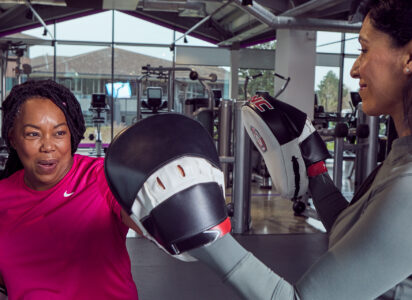We’ve all heard of intuitive eating, but what about exercising with the same mindset? Read on to find out more about intuitive exercising, how you can apply it and use it to maintain a balance between your goals and wellbeing.
Exercising intuitively
Training intuitively means that you exercise based on how you feel. It can mean that you are impulsive, less structured and generally happier to be active which can make you feel more in control and less ‘forced’ to comply with what you may not enjoy.
I feel terrible when waking up early for a run
If you are tired and need sleep, then take the rest. Exercising when you are tired won’t allow you to push yourself to the level needed and can lead to injury. If you’re able to keep a more flexible routine you should adopt a quality over quantity approach. By not exercising you may also focus more on making better nutritional choices which are more important and contribute to your sleep and alertness in the morning.
How to pick a training plan
Should you just do the exercises you fancy? Maybe not. This really depends on what you are exercising for and your intended goal. For example, if you are training for an event you could use the time to work on lower intensity activities that would aid your performance. For example, if you were training for the London Marathon, you could rotate your long run for a shorter run to match your mood. If you are exercising for general health, then you may choose to do some flexibility work or breathing exercises. Which could both lead to making you feel better and important aspects of health that we could all spend a little longer doing.
Exercising intuitively doesn’t mean you have to throw a training plan out the window. You can still work towards and achieve your goals, but adjust your training sessions depending on how you feel.
How to know when you should really push yourself
Usually when you are feeling fresh, well hydrated, rested and mentally focused is a great time to really go for it. Pushing yourself is something that you should prepare for. You can do this by arranging your lifestyle and other contributing factors, such as eating well in the subsequent days. If you wanted to really monitor this, you could track your morning resting heart rate for a series of days and look at trends in your rested state. If you are waking with an elevated heart rate, then this would suggest you are not getting deep sleep and need further rest before working at high intensity.
How to listen to your body
Understanding your body is something that take practice and consistency so don’t worry if you’re not sure at the start. Our ability to exercise will change depending on our lifestyles. As we get older, we move less and have more stressful priorities that replace exercise. This is why people that are inactive may blame this on their age. However, age isn’t always an excuse. If you keep active and eat well your body will respond and remain strong. If your body is telling you that an activity is hard and you feel unable to perform it well, this should give you the inclination of needing to listen to your body and do more to reduce/prevent this feeling in the future.
Could working out more be counter-productive?
Yes! Even if you want to do more, make sure you are fitting in ample rest time and maybe swap some days out for much lighter exercise, like a walk.
What happens when you’re not consistent?
You might be wondering what happens if I try to listen to my body and end up with a really inconsistent routine? Typically, this isn’t good. Neurologically it can lead to injury because your joints, nerve and muscle relationship isn’t established. Hormonally an imbalanced lifestyle will lead to dips in energy, a feeling of being lethargic, cravings in food and poor concentration. Long term your immune system and overall digestive ability will lower. Over-exercising and a poor lifestyle can put greater pressure on your adrenal glands (long term this is called adrenal fatigue). None of that sounds very good.
As mentioned above, listening to your body doesn’t always mean doing nothing when you feel like it, chances are that’s your motivation rather than your energy levels. Pay attention to how rested you feel, any aches or pains and which parts of your body you feel like would perform well that day.
Intuitive exercise or just being lazy?
Intuitive exercise is usually when people are in a pre-contemplation stage of exercise. They are still active but in a less regular routine. Laziness is when people just don’t want to exercise, make up excuses and put off all forms of activity. If that sounds familiar you might be better off keeping up a regular routine, even if you don’t plan your gym sessions down to the minute.
We’d love to hear your thoughts in the comments below, can don’t forget to subscribe to our blog newsletter to get all our latest updates straight into your inbox.







Thank you for actually explaining the difference between intuitive exercise and being lazy! I’ve had this argument with my partner many times. Great article.
Usually, I never comment on blogs but your article is so convincing that I never stop myself to say something about it. You’re doing a great job Man, Keep it up. Thank you for sharing the article.